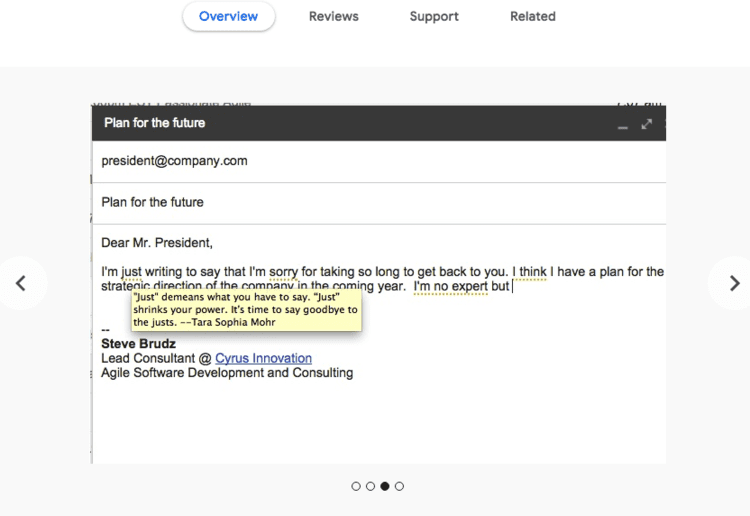Over a decade ago, I was writing a letter to someone and signed it “All my best.” When I asked someone to read what I wrote they asked me if I really wished this person the best. I most certainly did not wish this gentleman “All my best.” In fact, I did not wish him even a small portion of my best. Ever since then, I have tried to pay attention to how I start or close an email. ‘
Fast forward ten years. Recently, I was updating our Managing Director, Rajat Kapur, on the current status of each of my projects. I told him that I would call someone I needed to follow up with and say, “I am just checking in on that proposed plan we sent you.” Raj stopped me to ask, “ Why ”just”?” I hadn’t even thought about it, really. But yeah, why ”just”? Why am I “just” calling this man, for whom our company works, to get an answer? No, not “just.” Give me a damn answer, Mr. CEO. 😉
As a result of this conversation, Raj and I started talking about different qualifiers we hear.
“Actually, you’re right.”
Are you surprised I’m right?
“Can I be honest with you, I do not think that’s a good idea.”
Have you not been honest this whole time?
“I’m sorry but I hate that.”
Why are you sorry if you hate that?
When I say to someone, “I’m JUST checking in on that proposed plan we sent you” it diminishes what I’m doing and makes it seem less important. I’m not just doing anything. I’m doing my job.
Sorry, I’m Not Sorry.
Now that this is front of mind, I’m hyper-aware of these speech qualifiers people use. I find myself listening to the way men and women speak. I noticed that sometimes I catch myself apologizing to someone when I don’t understand something, or when I need their help. “I’m sorry, but I need help.” Why am I sorry? Am I sorry? I am not sorry, dammit. I don’t hear men using qualifiers as much as women, though it does happen. I also hear men apologize a whole hell of a lot less than women. My unfounded, unscientific hypothesis is that women are taught to be nice more than men are.
During a recent project kick-off call with a small team, I took their silence in response to something I said as a lack of buy-in or confusion. I noticed I kept saying, “Does that make sense?” I read the absence of affirmation as the presence of misunderstanding. Since then, I’ve promised myself not to keep taking silence as a chance to ask that question. We’re all adults, and the onus is on each person to speak up if they disagree or don’t understand. From now on, silence will be a source of affirmation rather than consternation for me.
The Just Not Sorry app, which is a Gmail plug-in with over 35k subscribers, underlines words in an email that might undermine the message you’re trying to send. The app explains itself like this: We’re Just NOT Sorry! Let’s build awareness of how we qualify our message and diminish our voice. Inspired by the writings of Tara Mohr and others, this Chrome Extension for Gmail and Inbox will warn you when you use words or phrases that undermine your message. Commonly used qualifying words and phrases are underlined for you to choose how you want to address them. Hover over the underline to see additional information about how using the phrase is perceived.
It looks like this:
How Managed Email Signatures work:
1. We create a signature template to match your organization’s branding and content strategy.

In her article “3 Communication Mistakes with Big Impact”, Tara Mohr calls these statements, “shrinkers.” She writes, “‘Notice how “just” shrinks or qualifies what comes next? Notice how “actually” makes the speaker sound like she’s surprised that she has a question?” In other words, qualifiers dilute the message and water down your communication, diminishing its impact. Who wants to do that? Not me.
I am trying to pay attention to the way I say things when I talk to colleagues and clients. This adjustment is showing me that the way you say something can impact how people interpret and react to what you say. For now, I hope they interpret me as someone who does not need to qualify what she says. And for that folks, I’m #sorrynotsorry.
